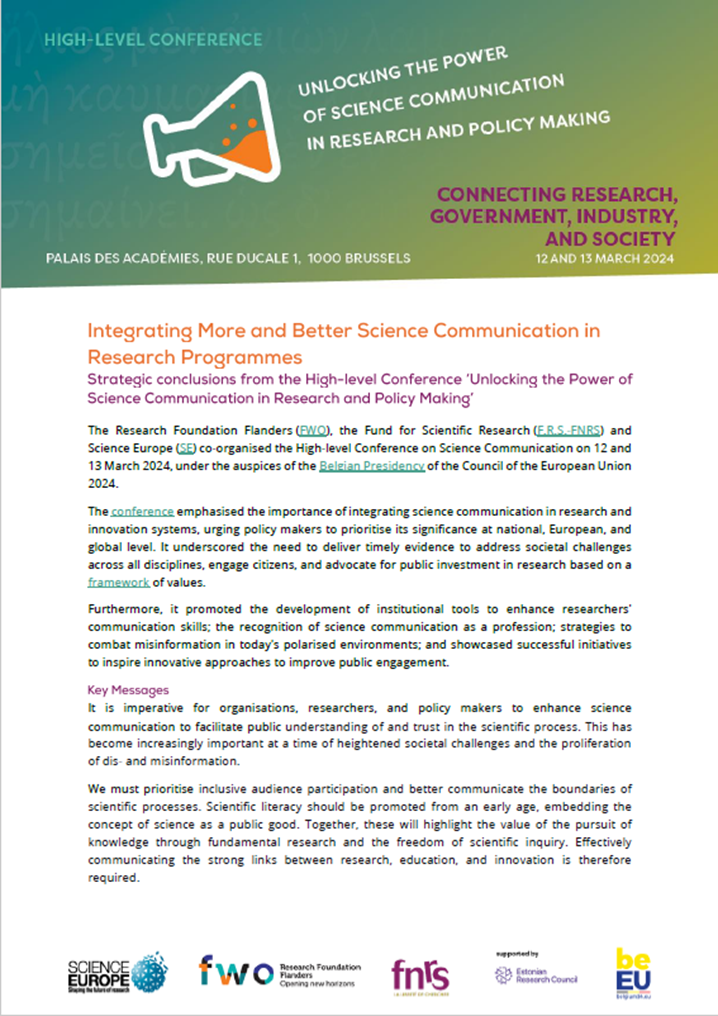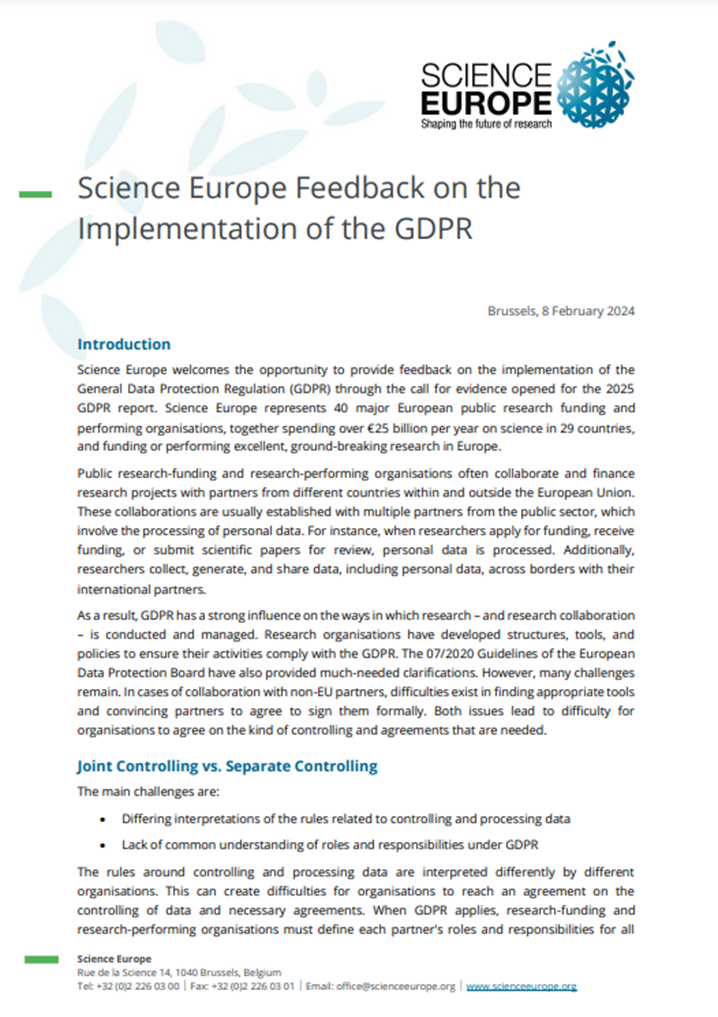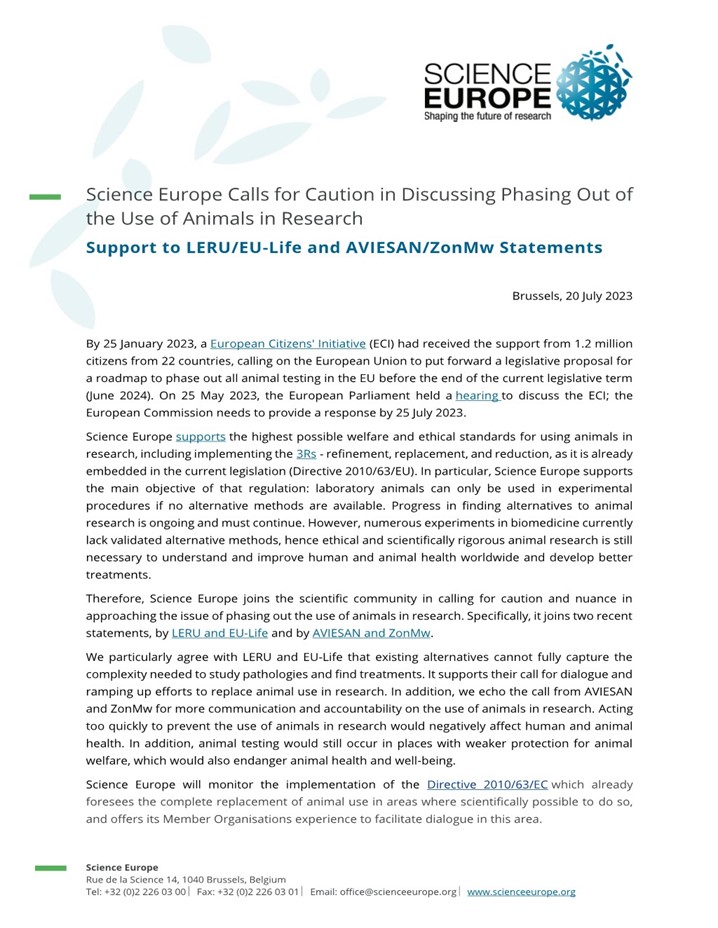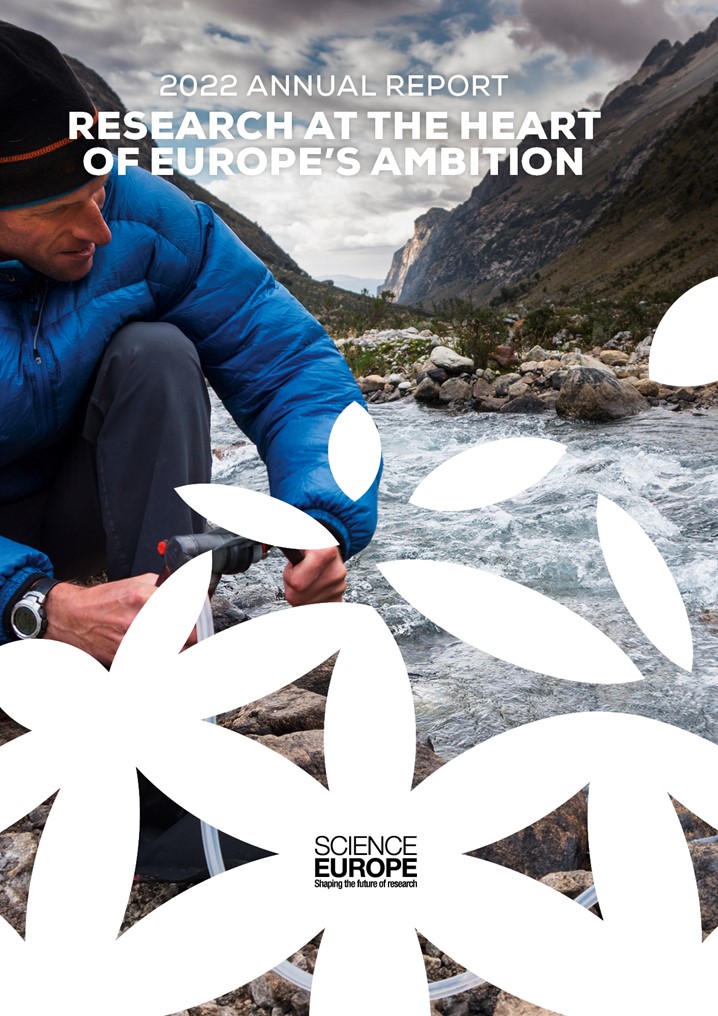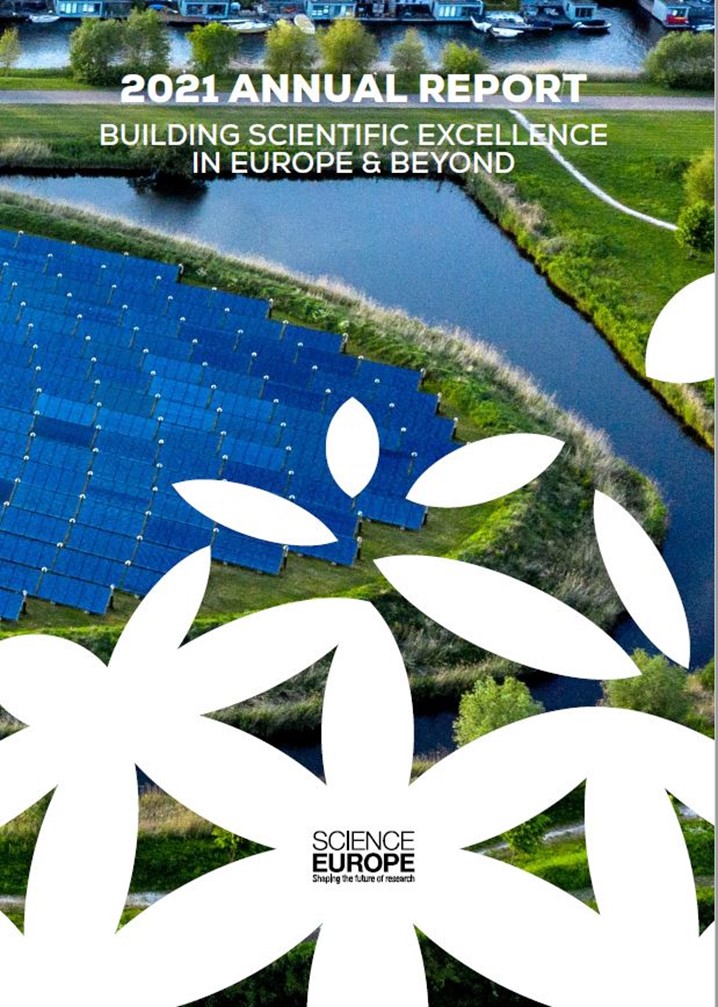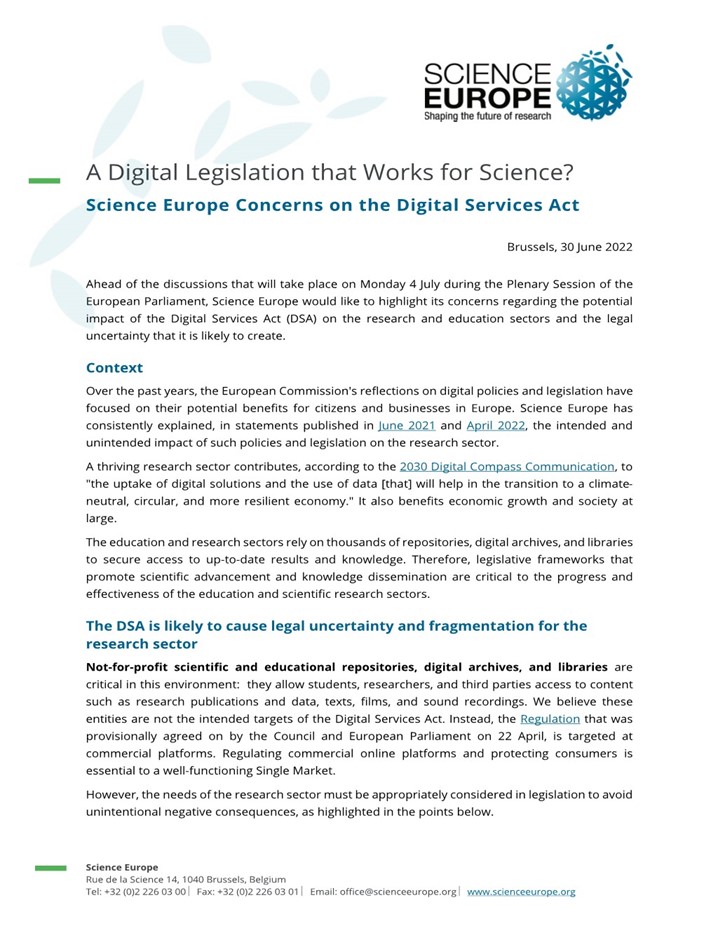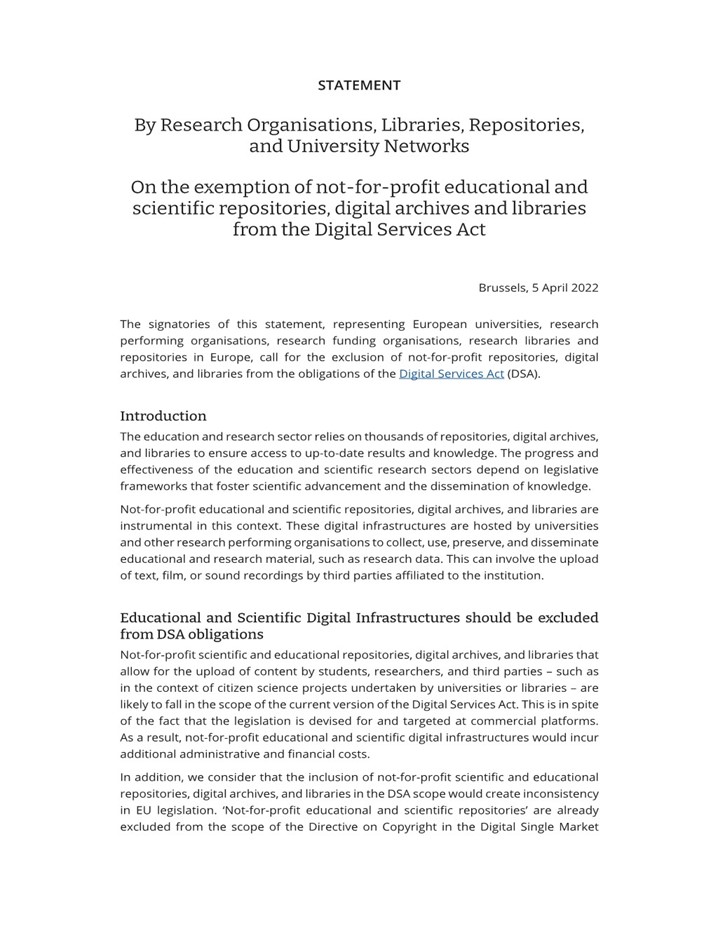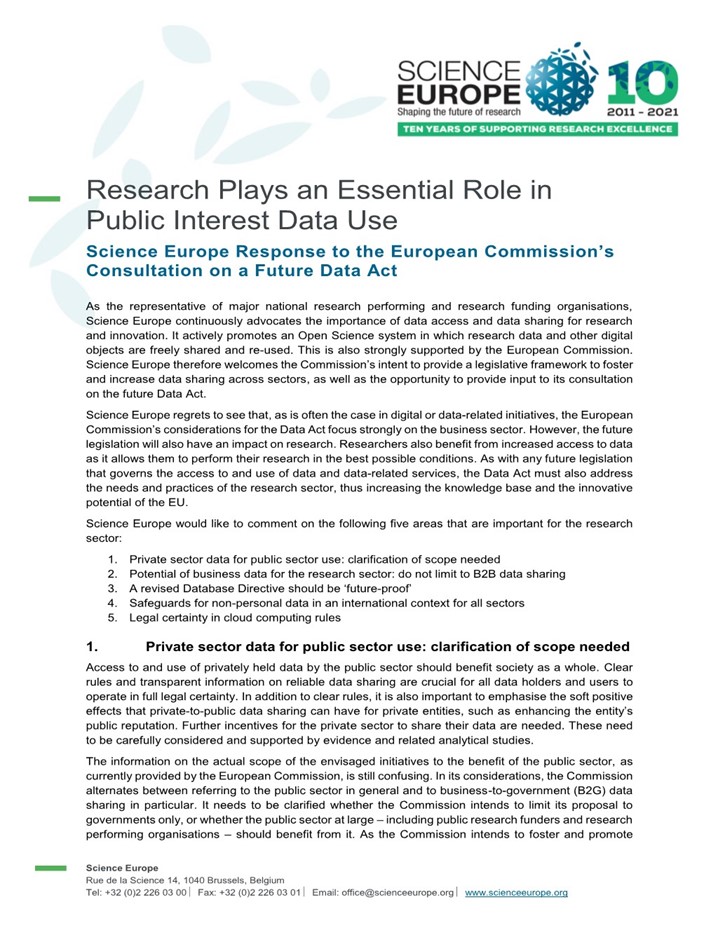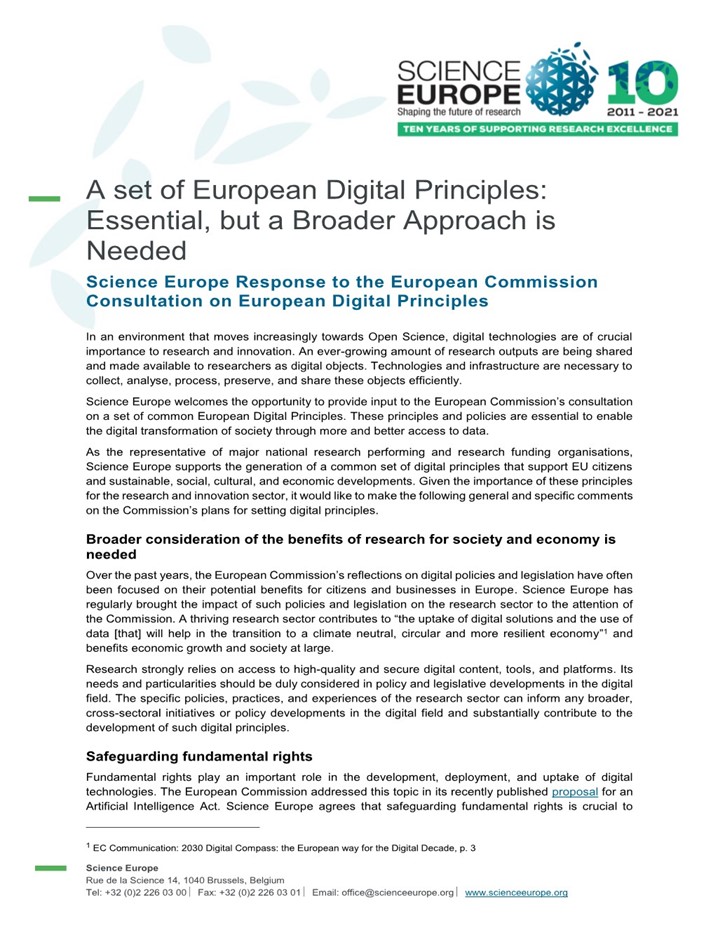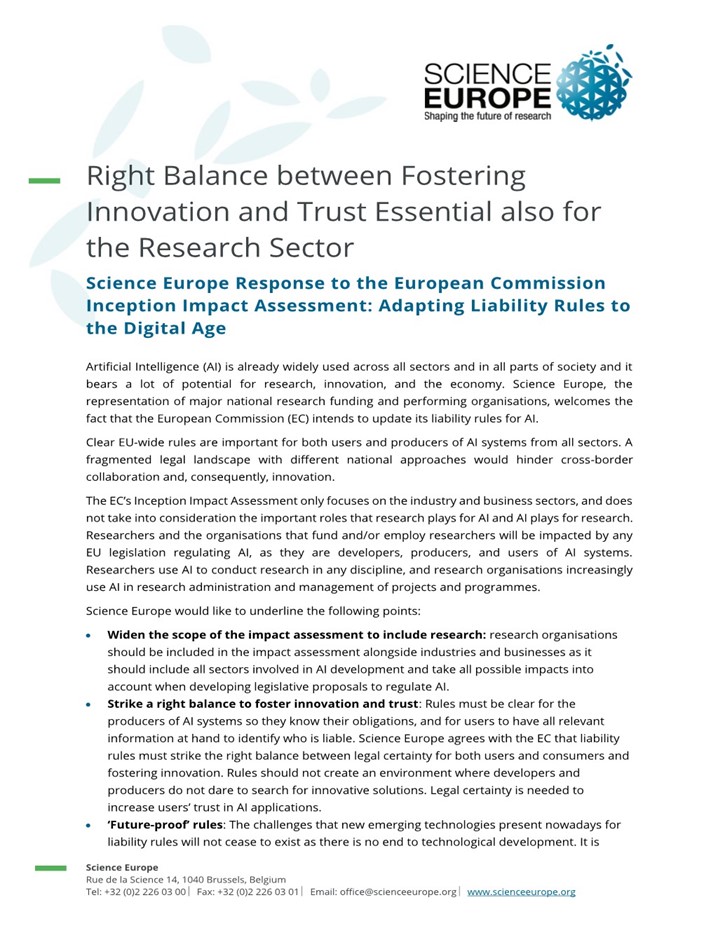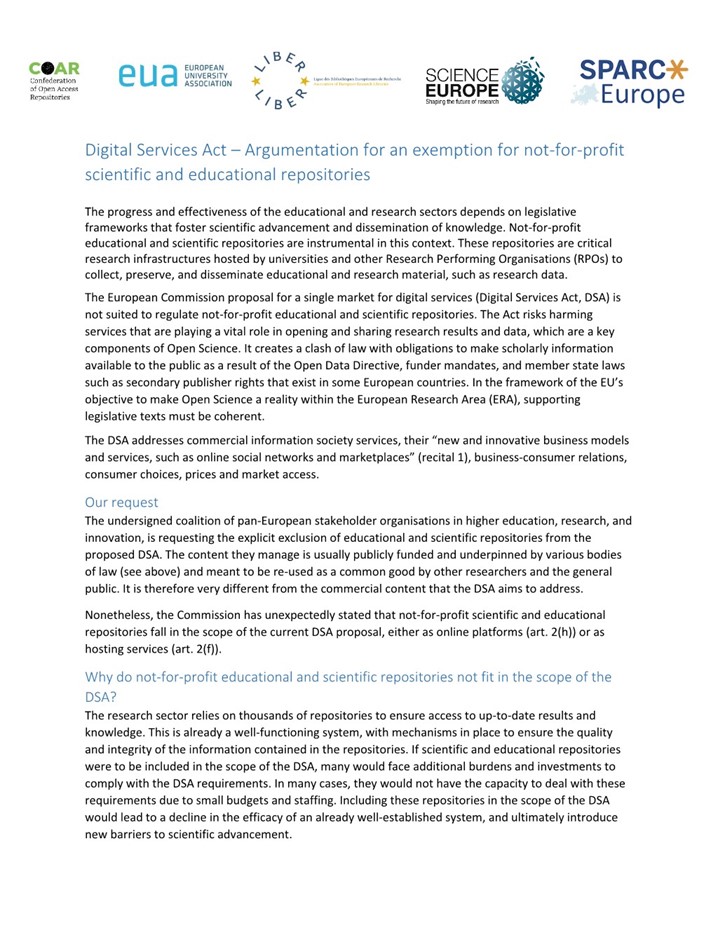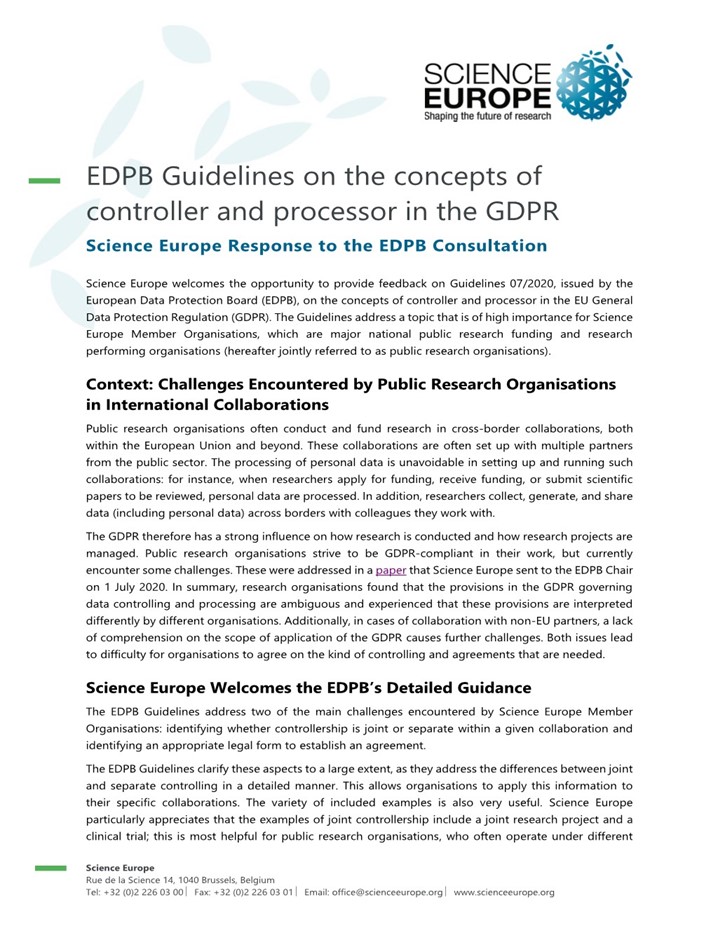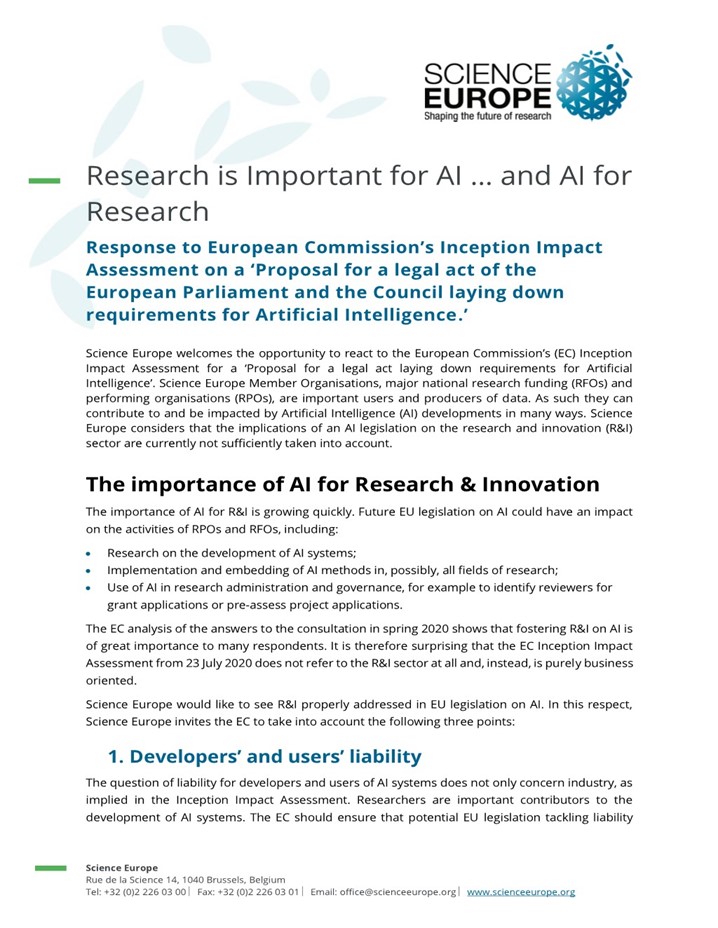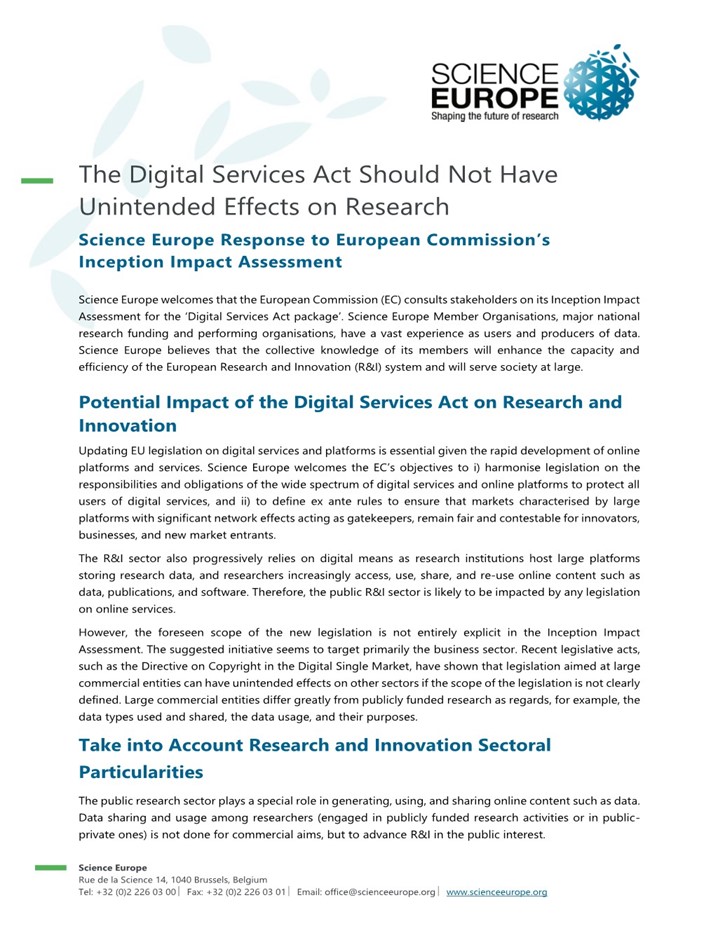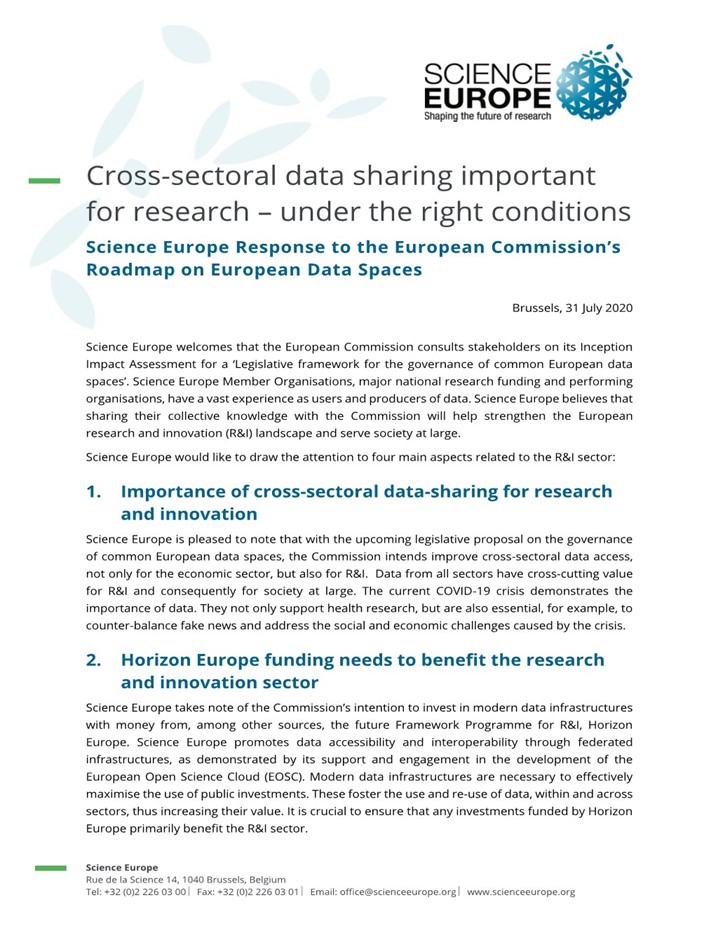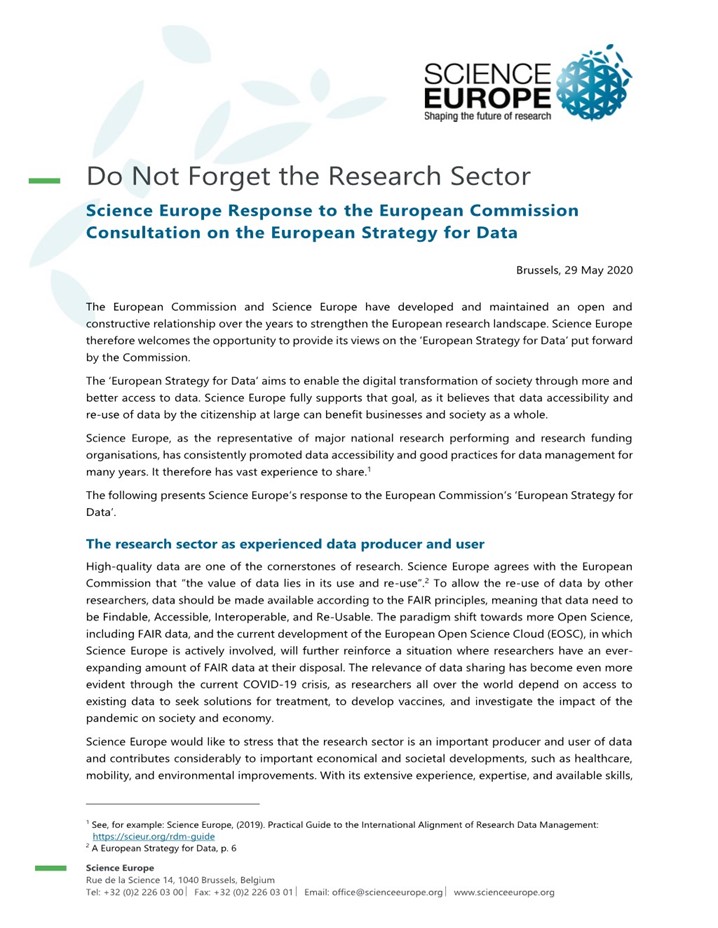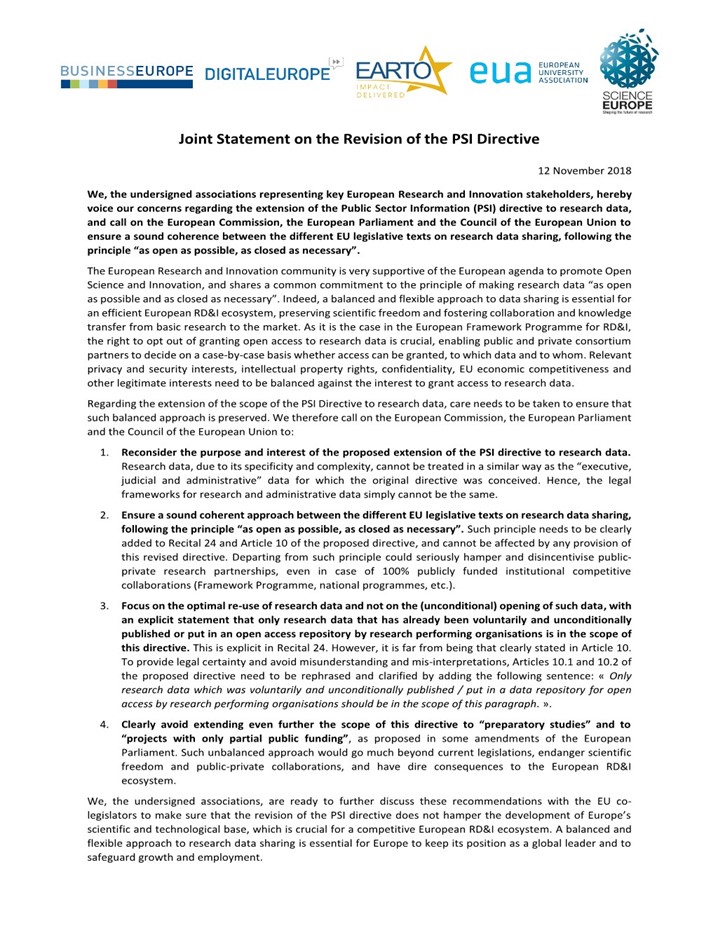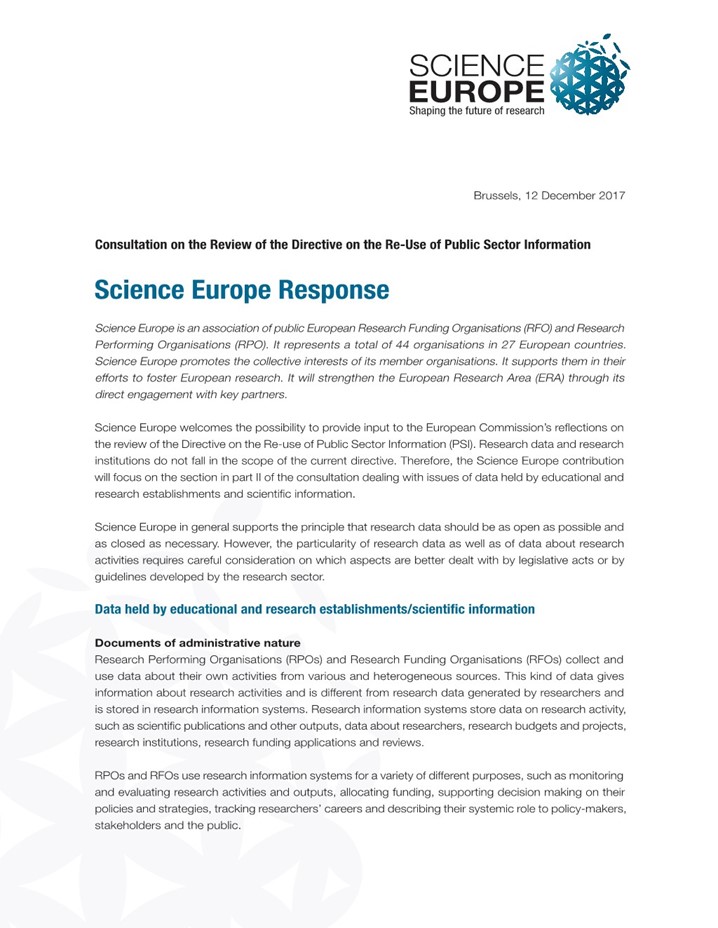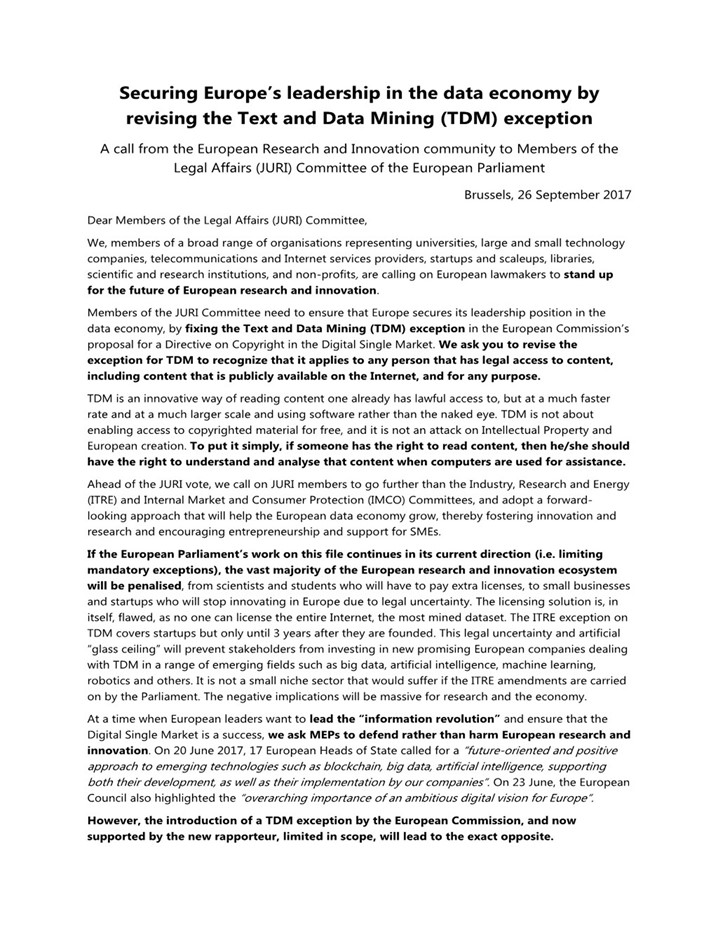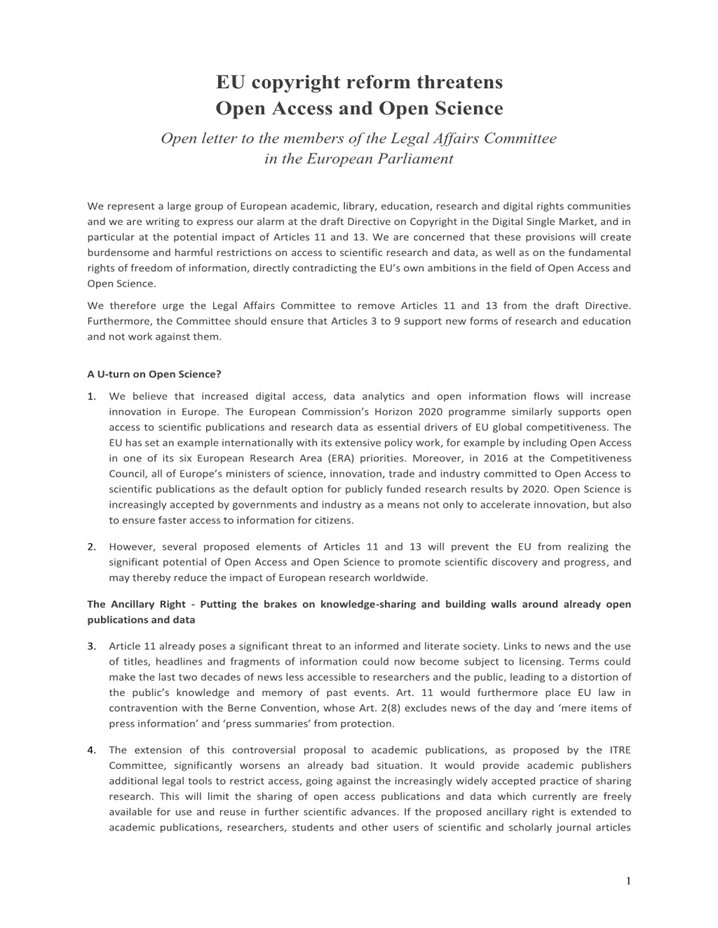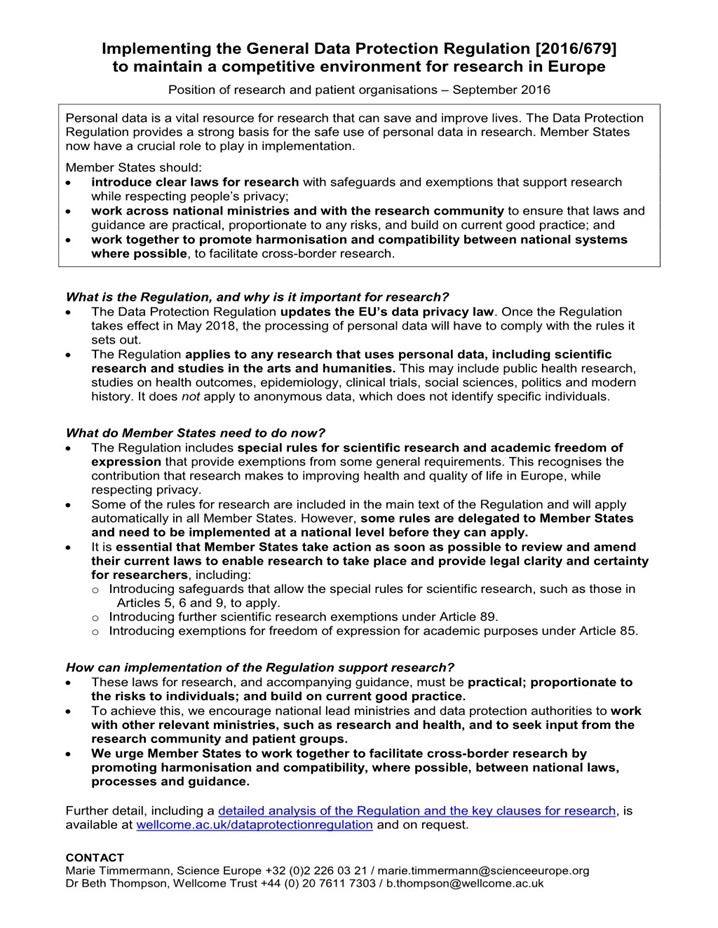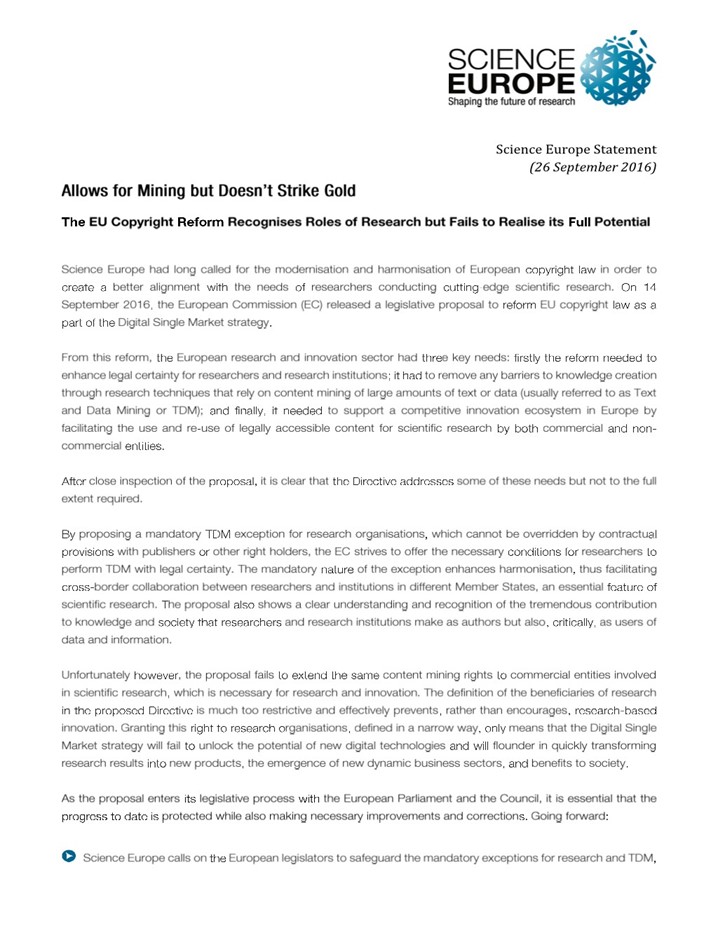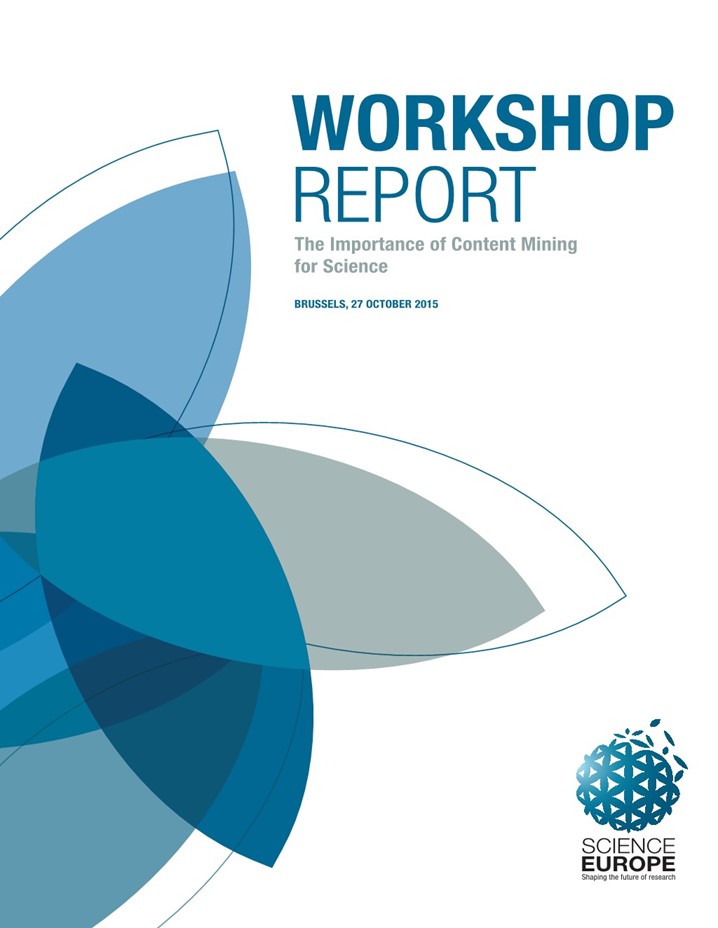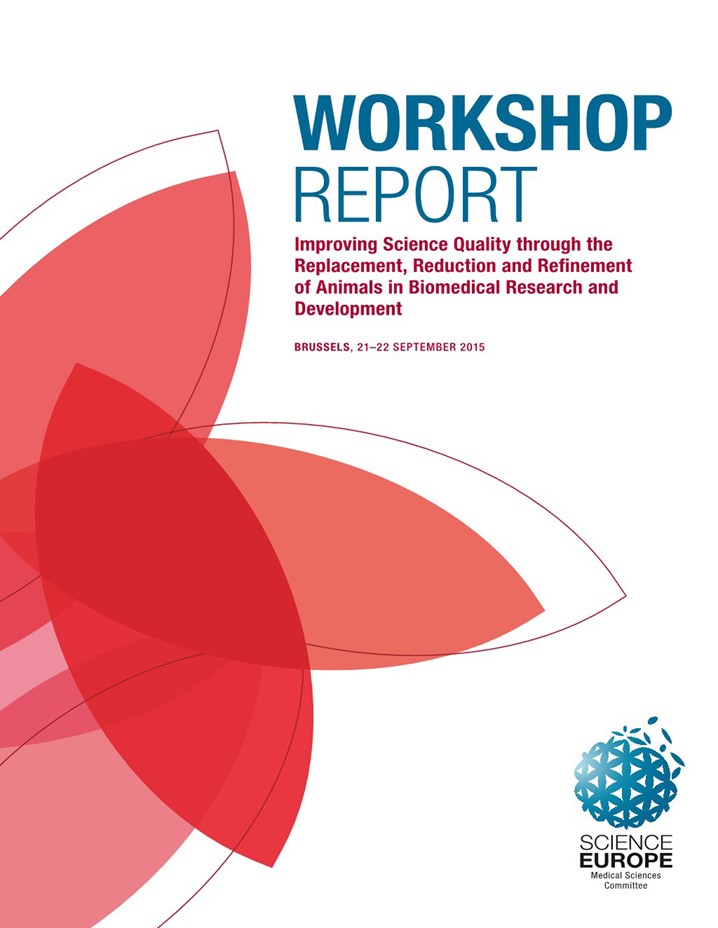Member-only content is available on this page. Please log in to view this content.

Our resources
Discover Science Europe’s comprehensive library of resources, including the most recent publications, briefings, and position statements.
26 resource(s) found
Science Europe Feedback on the implementation of the GDPR
Science Europe has provided feedback to the European Commission on the implementation of the General Data Protection Regulation (GDPR) through the call for evidence opened for the 2025 GDPR report.
Science Europe Calls for Caution in Discussing Phasing Out of the Use of Animals in Research
Science Europe supports the scientific community in calling for caution and nuance in approaching the issue of phasing out the use of animals in research, and endorses statements by several stakeholders.
Research at the Heart of Europe’s Ambition – 2022 Annual Report
In 2022, Science Europe made significant contributions in various areas, including research culture, research assessment, open science, EU framework programmes, the green and digital transition, and science communication.
Science Europe 2021 Annual Report
For Science Europe, 2021 was a very important year: the association celebrated its 10th year of existence. Founded in 2011, it has grown into a respected and influential voice in the European research policy debate. Moreover, we published a new Strategy Plan for 2021–2026, which maps our collective objectives and sets a specific yet flexible action framework over the next five years.
A Digital Legislation That Works for Science?
Ahead of discussions on 4 July in the European Parliament, Science Europe highlights its concerns regarding the potential impact of the Digital Services Act on the research and education sectors and the legal uncertainty that it is likely to create.
Statement on the exemption of not-for-profit educational and scientific repositories, digital archives, and libraries from the Digital Services Act
Research organisations, libraries, repositories, and university networks call for the the exclusion of not-for-profit repositories, digital archives, and libraries from the obligations of the Digital Services Act.
Research Plays an Essential Role in Public Interest Data Use
Science Europe Response to the European Commission’s Consultation on a Future Data Act
A set of European Digital Principles: Essential, but a Broader Approach is Needed
Science Europe Response to the European Commission Consultation on European Digital Principles
Right Balance between Fostering Innovation and Trust Essential also for the Research Sector
Science Europe Response to the European Commission Inception Impact Assessment: Adapting Liability Rules to the Digital Age
Digital Services Act – Argumentation for an Exemption for Not-for-profit Scientific and Educational Repositories
Science Europe joins forces with other stakeholder organisations to argue for an exemption for not-for-profit scientific and educational repositories in the Digital Services Act (DSA). Please note this is for internal use only as this document was sent to a selected number of Parliament and Council representatives to advocate for the exemption.
Response to the EDPB Consultation on the concepts of controller and processor in the GDPR
In its response to the European Data Protection Board (EDPB) Science Europe welcomes the detailed guidance on identifying whether controllership is joint or separate within a given collaboration and identifying an appropriate legal form to establish an agreement. However further clarification through the EDPB Guidelines would be helpful for public research organisations.
Response to the European Commission's Inception Impact Assessment on Artificial Intelligence
In its response to the European Commission, Science Europe highlights that future EU legislation on AI needs to strike the right balance between safeguards for users and developers of AI systems, and a legal environment that fosters R&I.
Response to the European Commission's Inception Impact Assessment on the Digital Services Act
In its response to the European Commission, Science Europe highlights that the foreseen scope of the new legislation is not clearly defined and greater clarification should be introduced to ensure that the Digital Services Act does not have unintended effects on research.
Response to the European Commission Roadmap on European Data Spaces
In its response to the European Commission Roadmap for an upcoming legislative proposal on the governance of common European data spaces, Science Europe reinforces the need to consider sectoral policies to ensure coherence.
Response to the European Commission Consultation on the European Strategy for Data
Science Europe calls on the European Commission to take into account the important role of the research sector as producer and user of data. The longstanding experience of the research sector should feed into the development of an overarching EU data strategy that promotes data access across sectors.
In its response to the EC consultation on the European Strategy for Data, Science Europe also underlines the need to consider sectoral policies to ensure coherence between overarching and sectoral policies.
Joint Statement on the Revision of the PSI Directive
In this joint statement research and Innovation stakeholders call on the EU institutions to seek a balanced approach to data sharing in response to the European Commission’s proposal for a revision of the Directive on re-use of public sector information (PSI Directive). While the partners are supportive of the European agenda to promote Open Science and innovation, and share a common commitment to the principle of making research data ‘as open as possible and as closed as necessary’, there is a need to focus on the optimal re-use of research data and not on the (unconditional) opening of such data.
Response to the Consultation on the Review of the Directive on the Re-Use of Public Sector Information
Science Europe supports the principle that research data should be “as open as possible and as closed as necessary.” However, the particularity of research data as well as of data about research activities requires careful consideration on which aspects are better dealt with by legislative acts or by guidelines developed by the research sector.
Securing Europe’s Leadership in the Data Economy by Revising the TDM Exception
This open letter, signed by the European Research and Innovation community, calls on Members of the European Parliament and the Council to secure Europe’s leadership in the data economy by revising the Text and Data Mining (TDM) exception in the draft of the Directive on Copyright in the Digital Single Market. It calls for the TDM exception to apply to any person that has legal access to the content to help the European data economy grow, foster innovation, and encourage entrepreneurship.
EU Copyright Reform Threatens Open Access and Open Science
This open letter issued by the international research community calls on Members of the European Parliament to halt the adoption of harmful provisions found in the current draft of the Directive on Copyright in the Digital Single Market, which could threaten Open Access and Open Science.
Joint Statement on Implementing the General Data Protection Regulation to Maintain a Competitive Environment for Research in Europe: Position of Research and Patient Organisations
This joint statement on the implementation of the Data Protection Regulation (DPR), facilitated by Science Europe and Wellcome and released by the wider research community, highlights the crucial role Member States must now play in its implementation by reviewing and amending their current laws to enable research to take place.
Allows for Mining but Doesn't Strike Gold: Science Europe Copyright Statement
The recent legislative proposal from the European Commission to reform EU copyright law addresses some needs, but not to the full extent required. Science Europe calls for research and data mining exceptions to ensure that copyright legislation is friendly to research and innovation.
The Importance of Content Mining for Science
Text and data mining (TDM) is hugely important for science as it can facilitate better research and the free flow of knowledge across borders. This report urges policy-makers to update the legal framework in the context of the upcoming EU copyright reform in order to allow TDM for commercial and non-commercial means, and also to clarify the legal position surrounding it.
Joint European Statement in Support of European Directive 2010/63
Protecting the use of animals for scientific purposes is of utmost importance. Over 240 leading biomedical research organisations, learned societies, industry representatives, universities and patient groups in Europe release this joint statement in support of the Directive 2010/63/EU which outlines the protection of the use of animals for scientific purposes.
Improving Science Quality through the Replacement, Reduction and Refinement of Animals in Biomedical Research and Development
The 3Rs (Replacement, Reduction, and Refinement) of animals in research is a key topic for all researchers. This paper covers topics such as barriers and misconceptions that impede implementation of the 3Rs, tools to support the better design of experiments, and examples of how new technological and scientific approaches may contribute to the 3Rs.

